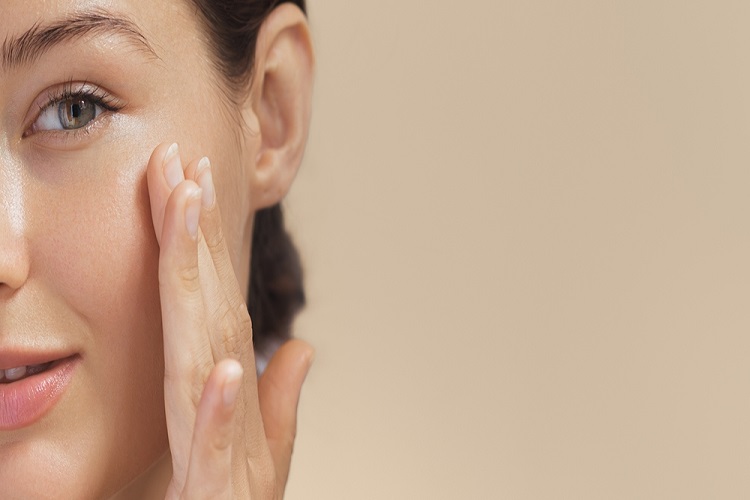Men and women are given the same set of teeth in life. In order to maintain those teeth, we all have to maintain good oral health, also called periodontal health. But there are some differences between periodontal health in women and periodontal health in men. A number of these differences come down to hormones. Because hormones and hormonal stages differ between the sexes, periodontal disease in women can have different risk factors than periodontal disease in men.

Changes in your body can mean changes in your mouth.
The life markers that occur for each gender are often based on changes in our hormonal levels. For women, these stages include puberty, menstruation, pregnancy, and menopause. In these phases, changes in hormones affect physical sensitivities right down to the tissues. Gums, of course, are part of our bodily tissue. During hormonal periods, a woman’s body deals with heightened sensitivity to oral plaque and bacterial and the chance of developing periodontal disease increases. What had been an appropriate amount of daily dental hygiene and awareness, may require extra care and periodontal support while going through one of these life changes.
How does puberty affect periodontal health in women?
Puberty marks the onset of fluctuating levels of sex hormones. Progesterone, in particular, can increase the blood circulation in gum tissue which increases their sensitivity. With increased blood circulation, our gums become more susceptible and reactionary to local irritants, like food, bacteria, plaque or tartar. Irritated tissue can become sore and swollen, and if left untreated can impact our oral health and lead to periodontal disease. If at-home care, such as brushing and flossing, does not alleviate the issue, a dental professional may be required to remove the cause of the irritation and to help monitor overall periodontal health during this period.
How does menstruation affect periodontal health?
Often, as puberty progresses and regular menstruation begins, the sensitive reaction of the gum tissue will lessen. It is important, however, to be aware that gums will continue to be more susceptible to irritants during periods of monthly menstruation. In some cases, women experience gingivitis for several days before their period or during their period. Gingivitis is marked by red, tender, or swollen gums, which are usually alleviated when menstruation stops. Being more vigilant with at-home care and regular check ups during these periods of increased irritability are effective means of preventing periodontal disease.
How do oral contraceptives affect periodontal health?
Since oral contraceptives are synthetic hormones, they can affect oral health in the same way as other periods of hormonal fluctuation. Contraceptives with progesterone lead to the same type of gum swelling susceptibility issues as are found during puberty and menstruation. It is important to pay close attention to daily oral care routines and check in with dental professionals regularly while taking oral contraceptives to prevent periodontal disease.
In order to minimize the risk of any drug interactions that may arise during periodontal treatment, ensure your dental professionals are aware of any oral contraceptives you are taking. Antibiotics, for example, can compromise the effectiveness of birth control pills.
How does pregnancy affect periodontal health?
Like all other periods of hormonal fluctuation, pregnancy can increase the sensitivity of gum tissue. Women dealing with gum disease when they become pregnant are at a higher risk of developing pregnancy gingivitis. This added risk is because areas that have already been inflamed are more susceptible to re-inflammation. Pregnancy gingivitis is more prevalent between the second and eighth months of pregnancy. Although symptoms are often alleviated after childbirth, women are still advised to get more regular oral check-ups in their second and third trimesters.
Less frequently, women may develop lumps on their gums called pyogenic granuloma, or pregnancy tumours. These tumours are non-cancerous, usually painless and are marked by little red dots on the bump. They are a severe reaction to local irritants and can be treated with the help of dental professionals and heightened at-home care. Occasionally, these periodontal issues remain after pregnancy and require the development of an action plan between you and your periodontist.
Periodontal health should be part of your prenatal care. Any infections during pregnancy, including periodontal infections, can place a baby’s health at risk. The best way to prevent periodontic infections during pregnancy is to begin with healthy gums and continue to maintain your oral health with proper home care and careful monitoring.
How does menopause affect periodontal health?
Menopausal and postmenopausal women experience a number a drastic changes in their body chemistry. But, periodontal disease and its risk factors during this stage remain consistent with the other periods of hormonal fluctuation in a woman’s life. Gum tissues can become more susceptible to reactions from irritants, leading to increased risks for developing periodontal complications.
In rare cases, women may develop menopausal gingivostomatitis, marked by red or pale, shiny, and fragile gum tissue. They may also experience abnormal taste sensations like salt, pepper, or sourness; the development of dry mouth, which can be treated with saliva substitutes; or sensitivity to hot and cold food and liquids.
Preventing Periodontal Disease in Women
When a woman’s body is going through hormonal changes and becomes more sensitive, it’s important to remember that these sensitivities also encompass the inside of the mouth. Taking more care with daily brushing, rinsing, and flossing is advisable in preventing periodontal disease and its risk factors. Keep an eye on the gums and watch out for any changes in their appearance or well being. Working with periodontal professionals to monitor the mouth during periods of increased susceptibility to irritants is the best way for a woman to ensure she is taking care of her changing body and her periodontal health.









Comments